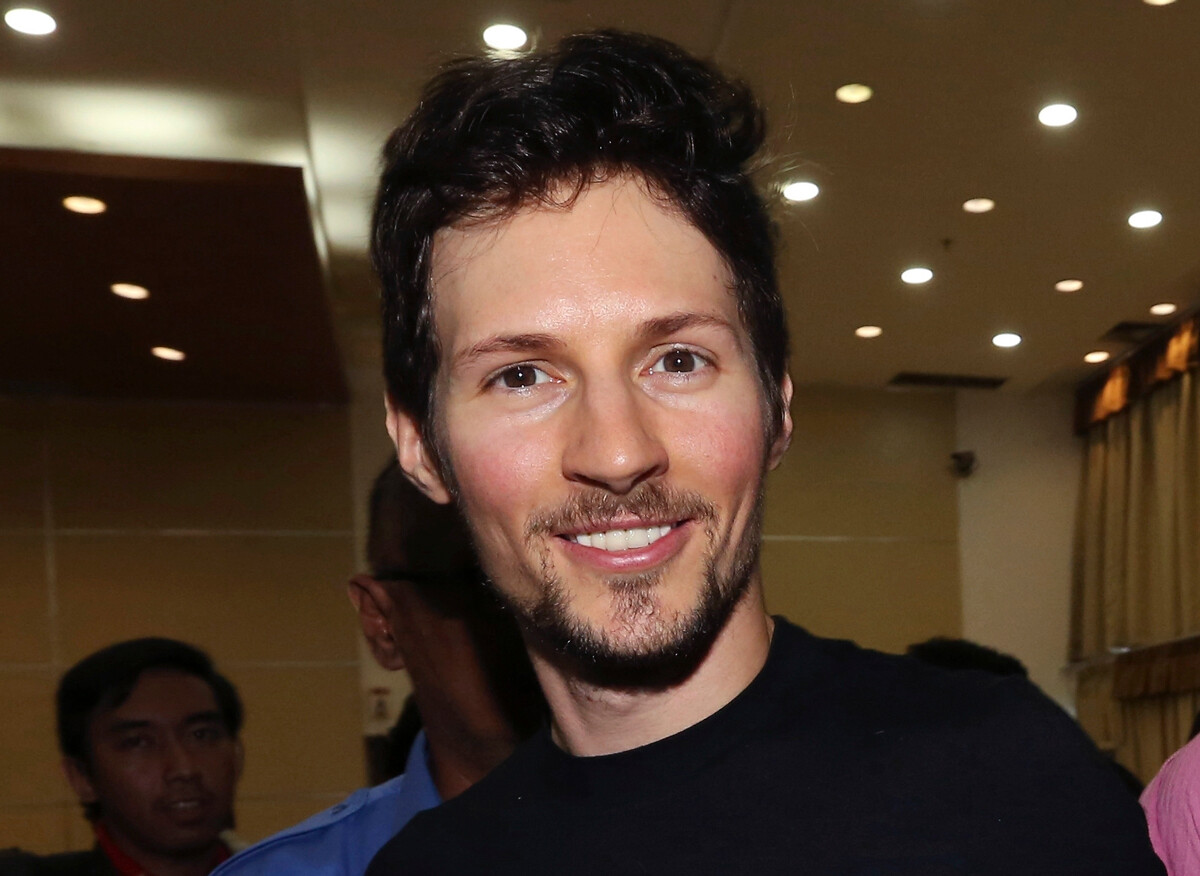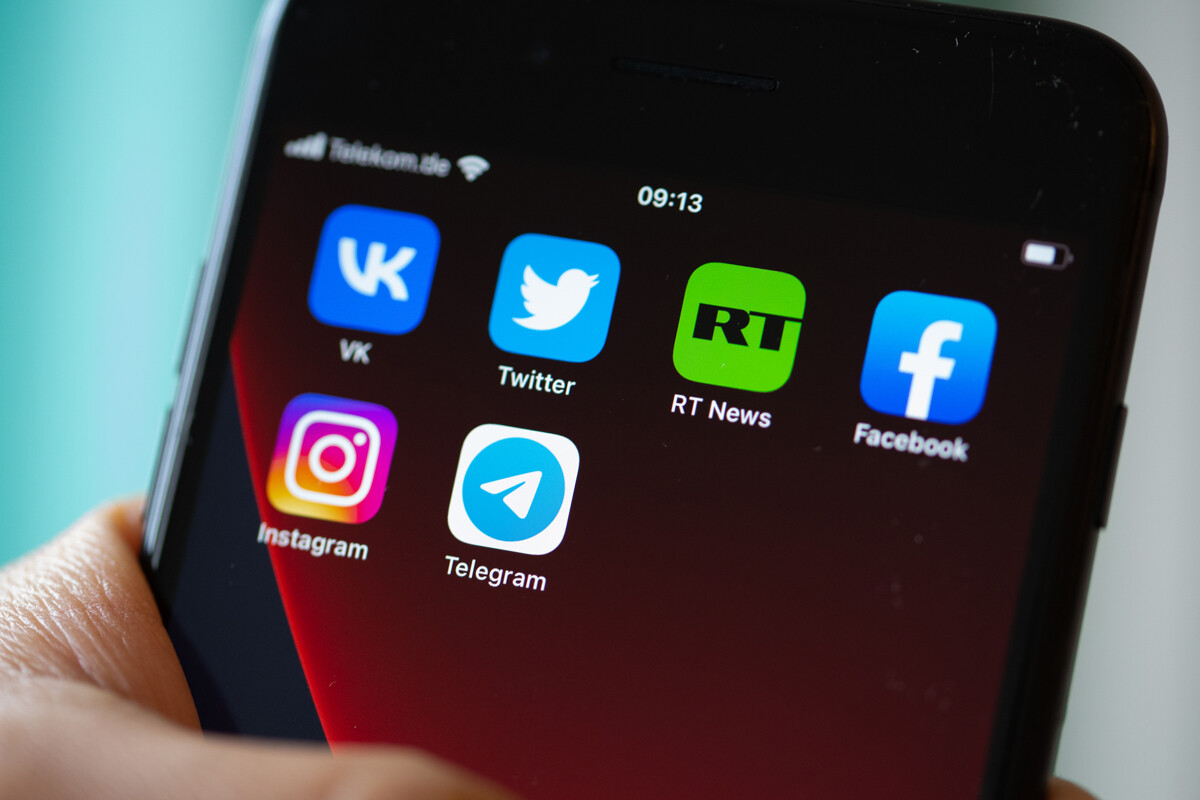
Telegram is a messenger app created in 2013 by Pavel Durov, the founder of Russia’s most popular social network, ‘VKontakte’. In 10 years, it has transformed from a messenger into a full-fledged social network with 700 million active users per month. And, on August 9, 2023, Telegram surpassed ‘VKontakte’ in daily reach for the first time in history.

Pavel Durov in 2017.
Tatan Syuflana/AP PhotoInitially, Telegram was created as a messenger for an international audience and it was only in 2017 that the app introduced a Russian interface. Despite this, Russia is one of the leading countries in terms of the number of users. In June 2023, the app’s monthly reach reached 63.1% of the population in Russia over the age of 12.
In 2022, Telegram even surpassed WhatsApp in terms of traffic volume and it is forecasted to surpass its competitor in terms of user count in 2023. The rapid growth of the audience is, of course, also attributed to the blocking of Instagram and Facebook in Russia.
Telegram is one of the top 5 most downloaded applications worldwide. In 2022, Telegram was downloaded 70.48 million times in India, 20.03 million times in the U.S., 19.61 million times in Indonesia and 18.04 million times in Brazil. In 2021, the messenger managed to reach the second place in terms of downloads in the U.S. – it happened after the suspension of then-President Donald Trump’s Twitter account.
Another reason was the change in the privacy policy of the WhatsApp messenger, which can now share user data with other Meta applications. The Telegram team, on the other hand, refuses to grant access to messages and user data, even upon government requests, except in cases where a user is suspected of terrorism.

Although Telegram was originally created as a messenger, it has now become a full-fledged social network. In addition to chats, the app features channels that function similarly to communities on Facebook. Users subscribe to channels, see their posts, can discuss them in comments and use reactions (similar to likes). A significant distinction of Telegram from other platforms is the absence of algorithms – the app lacks a “recommendations” section, allowing users to choose what they see in their feed. Channels are designed like chats and each post is accompanied by notifications for subscribers (notifications can be disabled). The only way to promote content on the platform is to buy advertising from another channel or from the app itself. The latter type of ads can be removed from the feed by purchasing a premium subscription with additional features: fast file downloads, unique stickers, additional chat management tools, voice message recognition and much more. However, all key features remain free and keep expanding. For example, in June 2023, Telegram introduced ‘Stories’ (self-deleting posts in photo or video format, similar to Instagram).
The combination of the endless feed format without algorithms with a messenger has made Telegram the main news aggregator in Russia – it’s currently the primary type of content on the platform.

Currently, the platform is blocked in China, Iran, Iraq and Pakistan. In some cases, Telegram was blocked during protests, to limit the ability of protesters to coordinate actions through the messenger, while in other cases, the reason was “indecent content”. These are not the only countries where the social network faced blocking. In various states, the reasons included the Telegram team’s refusal to delete specific content or provide decryption technology for private user messages. User security and a commitment to avoiding censorship are fundamental principles of the platform. For example, during the COVID-19 pandemic, Telegram refused to remove fake posts about the coronavirus. Pavel Durov commented on this: “…we did not think it was our role to decide for our users what they should believe. […] In the 20 years of managing discussion platforms, I have noticed that conspiracy theories only get stronger every time moderators delete their content. Instead of putting an end to wrong ideas, censorship often complicates the fight against them. That’s why spreading the truth will always be a more effective strategy than engaging in censorship.”
Once, the platform was also blocked in Russia, but, in 2020, this decision was reversed and during the time of the blockade, the number of its Russian users doubled.

Dear readers,
Our website and social media accounts are under threat of being restricted or banned, due to the current circumstances. So, to keep up with our latest content, simply do the following:
If using any of Russia Beyond's content, partly or in full, always provide an active hyperlink to the original material.
Subscribe
to our newsletter!
Get the week's best stories straight to your inbox